Can Christmas plant decorations be deadly to animals? What SC pet owners need to know
The holiday season is here and it’s not uncommon to start seeing poinsettia plants decoratively placed around town. A symbolic Christmas flower, much like the lily is for Easter, the bright red poinsettia is seemingly everywhere. But, this plant, among other popular holiday plants, are rumored to be quite dangerous for your pets.
The poinsettia plant (Euphorbia pulcherrima), also called the lobster flower, flame leaf flower, Flower of the Holy Night and Flower of Christmas Eve, has long been known as being incredibly toxic, and even deadly, to pets.
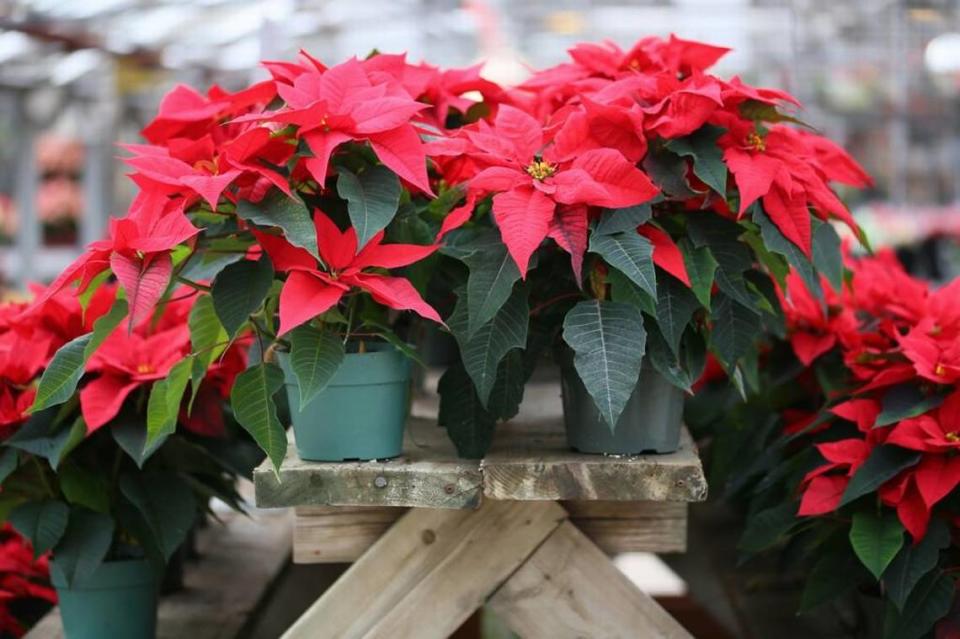
Although, yes, these red floral plants are toxic, they are not necessarily deadly. In fact, albeit not ideal, they are only mildly poisonous to cats and dogs.
“The milky white sap found in poinsettias contains chemicals called diterpenoid euphorbol esters and saponin-like detergents. While poinsettias are commonly ‘hyped’ as poisonous plants, they rarely are, and the poisoning is greatly exaggerated,” wrote Pet Poison Helpline. “When ingested, mild signs of vomiting, drooling, or rarely, diarrhea may be seen. If the milky sap is exposed to skin, dermal irritation (including redness, swelling, and itchiness) may develop.”
In some instances, eye exposure in pets can also result in irritation.
Poinsettia flowers are made up of bracts, which many think look like flower petals, and small yellow flowers in the center, called cyathia. The colorful bracts are what attract insects to the small, inner flowers and will drop after pollination, according to the University of Minnesota Extension.
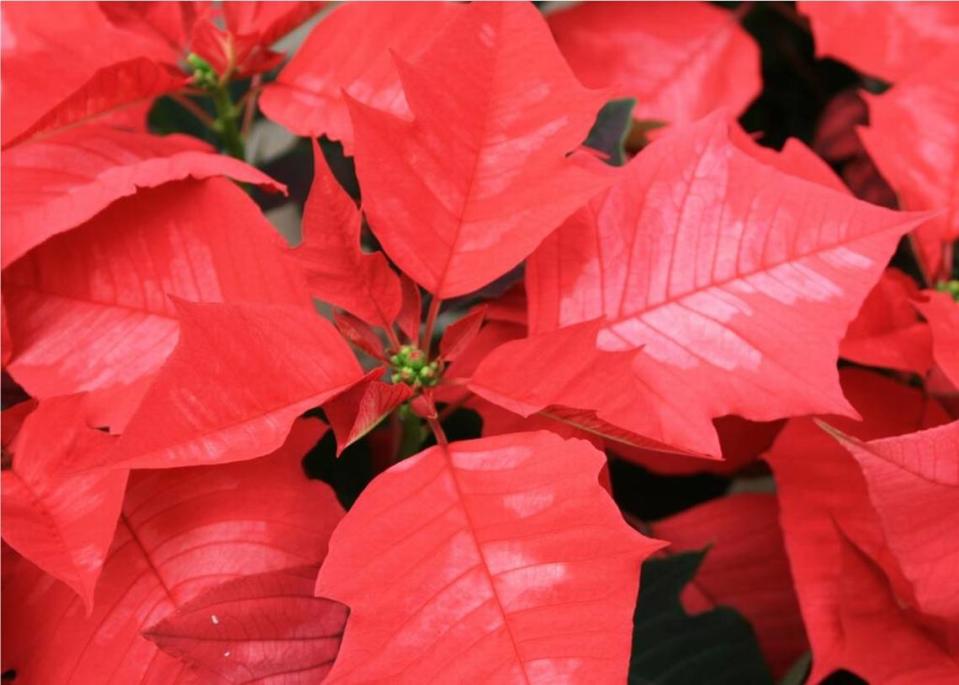
Poinsettia plants are not deathly harmful to animal or human health, but they should never be eaten. The sticky white sap that can cause irritation for pets can also cause a skin rash in humans. This being so, gloves are recommended when working with these plants and you should avoid contact with eyes and mouth, the University of Minnesota Extension states.
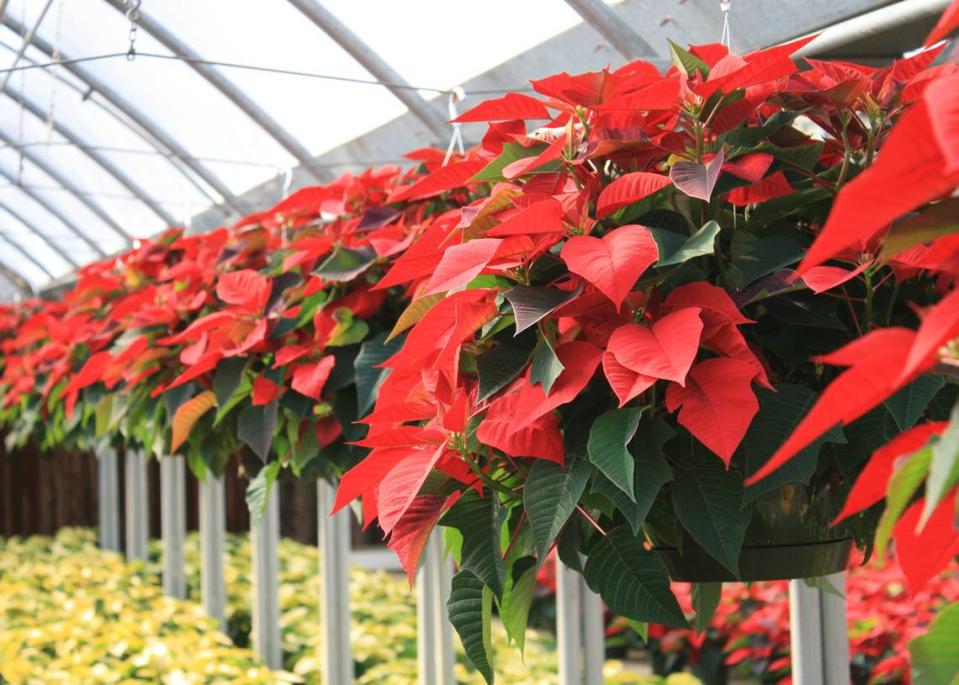
Generally, only mild symptoms appear in pets upon ingestion or contact. Although it rarely may be necessary, contacting your local veterinarian is always a safe thing to do as it can impact separate animals differently.
The American Kennel Club agrees that poinsettia plants are mildly toxic plants and should be used with caution, but the potential dangers are hardly ever serious or fatal.
“While medical treatment is rarely necessary when a dog ingests a leaf from a poinsettia plant, you should contact your veterinarian if clinical signs appear in your dog,” detailed the American Kennel Club.
Other dangerous holiday plants
There are several other holiday plants that are deadly for pets to ingest.
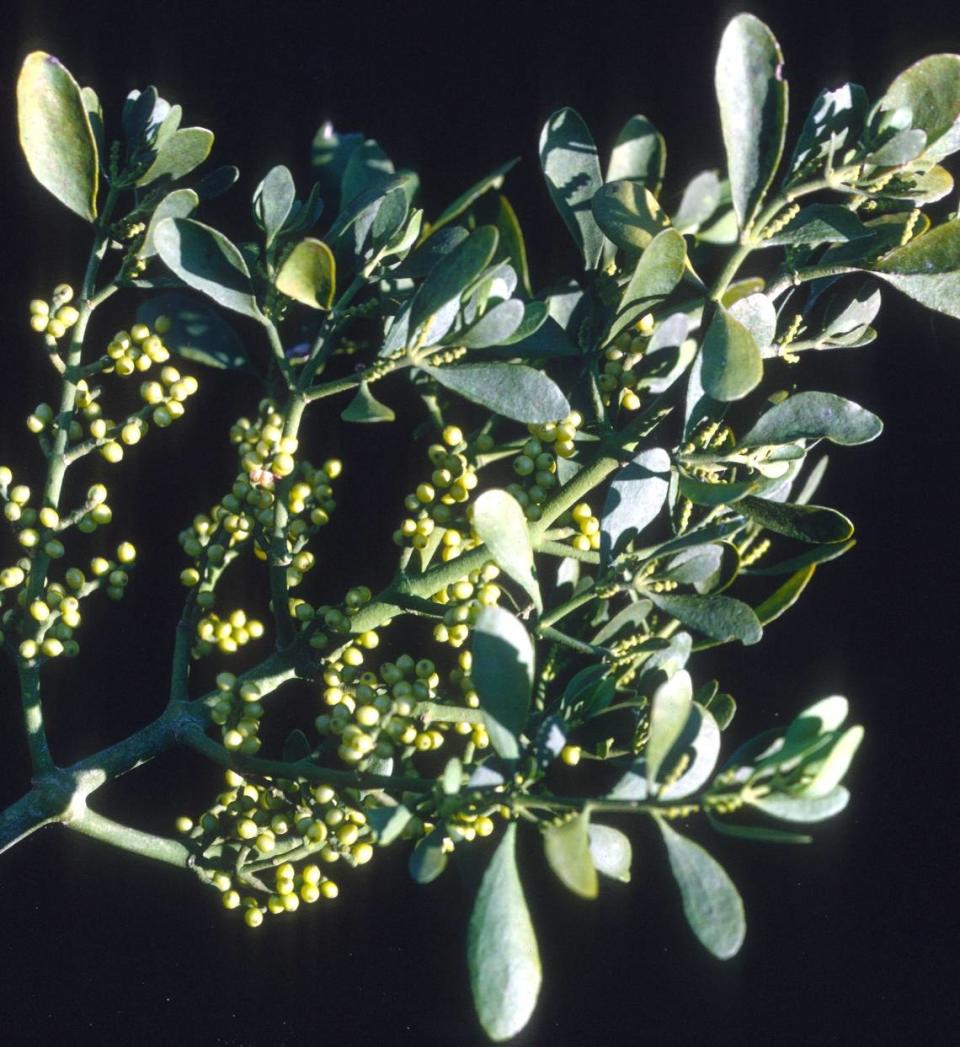
Although poinsettias are only mildly toxic to pets and will generally not cause life-threatening symptoms in pets, the American Kennel Club created a list of popular Christmas-centered plants that are dangerous to dogs that may surprise you. These include:
Mistletoe
Holly – the berry and leaf
Palm Lily
Peace lily
Calla lily
Amaryllis
Lily of the Valley
Autumn Crocus
Giant Dracaena
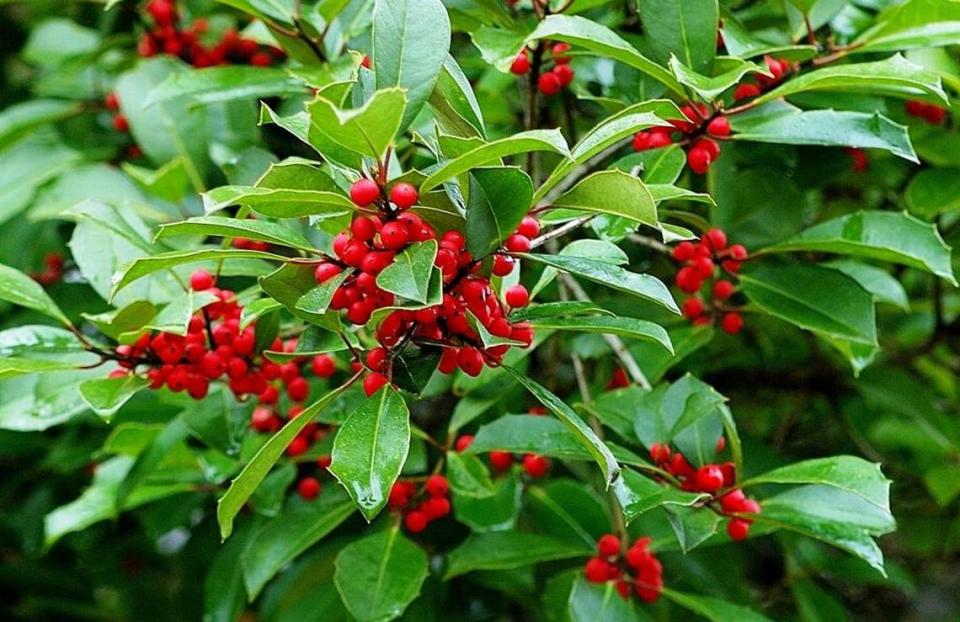
In addition to the several listed house plants, the dangers don’t end there.
For those who decorate with real Christmas trees, even these can cause an issue.
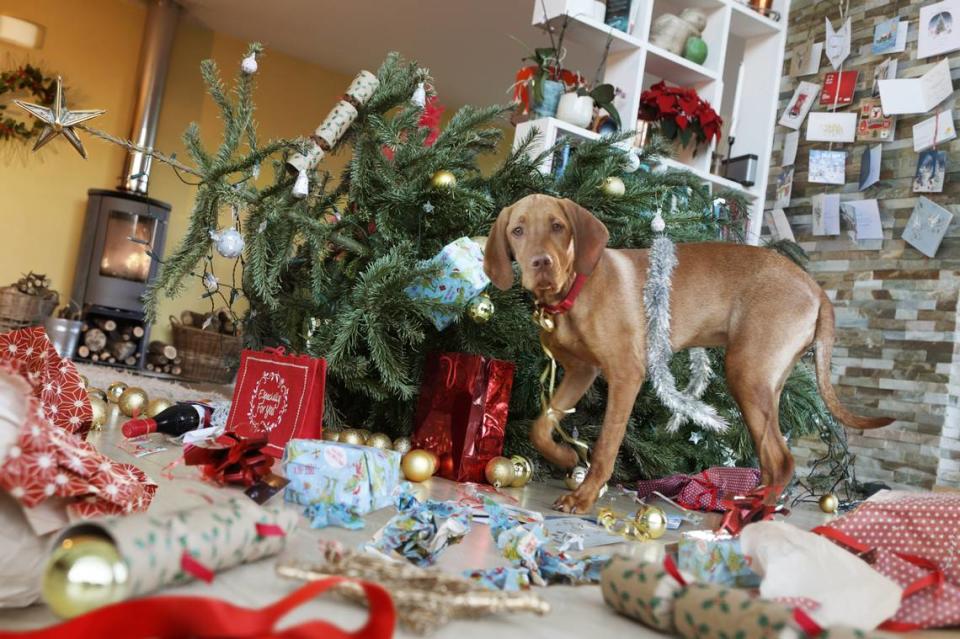
Curious pets often try to explore Christmas trees, which usually will be a variety of spruce, fir and pine. However, ingestion of the tree’s needles can irritate their mouth and stomach, resulting in vomiting, diarrhea, and drooling, the Pet Poison Helpline states.
Ingestion of real or fake Christmas trees can potentially obstruct the gastrointestinal tract and even possibly cause perforation, as the needles do not digest well. This can also carry over to pets that drink Christmas tree water, which can cause mild vomiting and diarrhea.
If your pet ingests any of these plants, calling your vet or a 24-hour emergency helpline could be crucial for its health depending on the size of the animal and the quantity of the plant ingested.

